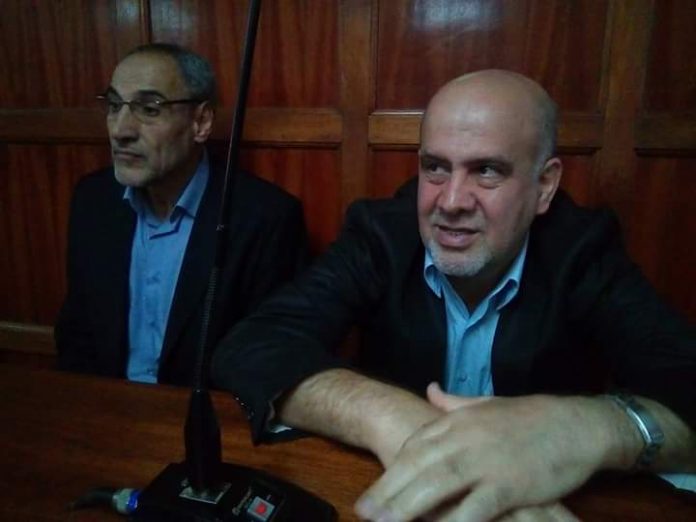
Supreme Court has suspended decision by court of appeal that acquitted and ordered repatriated of two jailed Iranian over terror links.
“We order that pending the filing, hearing and final determination of the applicant’s intended appeal, the respondents’ acquittal by the Appellate Court is hereby stayed and the respondents shall be held in police custody”. Ruled the court.
The two Iranian nationals,Ahmad Abolfathi Mohammed and Sayeed Mansour Mousavi were sentenced for 15 years by the high court for being in possession of explosives.
They were charged and convicted for being in possession of explosives contrary to section 29 of explosive Act, committing an act intended to cause grievous bodily harm contrary to section 231 of penal code and preparing to commit felony contrary to the penal code.
Detention without trial is back!!! CJ Maraga and 4 judges of the Supreme Court rule today that the Supreme Court has power to detain a prisoner acquited by the Court of Appeal…so 2 prisoners held now for 9 months in police cell following the order by the Maraga Court.
— Ahmednasir Abdullahi SC (@ahmednasirlaw) September 28, 2018
Five Supreme court judges, Chief Justice David Maraga ,Mohammed Ibrahim, J.B. Ojwang ,Smokin Wanjala, Njoki Ndungu in their 34 page ruling set aside the entire decision by the court of appeal that declined allow Director of Public Prosecution to appeal the acquittal decision.
“We hereby review and set aside the Appellant Court’s said decision of 16th February 2018 declining to grant the certification that this matter is of public importance and denying the appellant leave to appeal to this court against the court of appeal decision which allowed the respondents appeal, quashed their conviction and ordered repatriation” ruled supreme court.
The court noted that, the two are Iranians adding that Kenya and Iran has no extradition treaty with Iran.
Supreme Court accepted submission made by senior director of public prosecution Duncan Ondimu that, if the two were repatriated , it will be difficult to secure the two presence in Kenya to complete their imprisonment term if the state appeal is disallowed.
With all due respect SC, we (@ODPP_KE ) presented the best legal arguments. Its one of the best decisions ever rendered by the Supreme Court. Well detailed, well reasoned decision.
“In the circumstances, we allow the application for stay of execution of the respondent’s acquittal and repatriation”. Ruled supreme court.
With all due respect SC, we (@ODPP_KE ) presented the best legal arguments. Its one of the best decisions ever rendered by the Supreme Court. Well detailed, well reasoned decision.
Sorry it did not go the way you would have loved. https://t.co/rPQLbPYntt— Duncan Ondimu (@matundura78) September 28, 2018
The Director of Public Prosecution early this year applied to the Supreme Court seeking to quash a decision that set free two Iranians who were jailed by high court over terror-related charges.
Supreme court Justice J.B Ojwang directed that Ahamad Abolfathi Mohammed, and Sayed Mansour Mousavi remain within the jurisdiction of the supreme court.
“The applicant will be contesting the release by the appellate court, of the two who were facing charges bearing claims of serious threat to the security of citizens –notable the charge under the Explosives Act,” rule justice Ojwang.
The court further certified the matter as urgent.
The DPP in its appeal say that it is dissatisfied with the judgment issued by the court of appeal adding that it erred in law by quashing the sentence and setting the two free.
The Two Iranians were jailed for 15 years in 2013 over terror-related charges The High Court found Ahamad Abolfathi Mohammed, and Sayed Mansour Mousavi, guilty of concealing 15 kilograms of bomb-making material in the country.
But moved to the court of appeal through their lawyer Ahmednassir Abdullahi where they secured their freedom after the Court of Appeal ruled that there was no sufficient evidence to link them to the bomb-making material recovered in 2012.
Appellate Judges Kihara Kariuki, Kathurima M’inoti and Agnes Murgor held that the circumstantial evidence relied on by both the High Court, and Magistrate Court, was so weak that it did not point to them as the only persons who could have placed the bomb-making material, RDX, at the Mombasa Golf Course where it was found.






